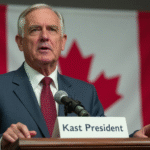Background on Key Figures and Relevance
The United States Treasury Department recently targeted Mexican criminal networks by sanctioning seven individuals and fifteen companies associated with “Los Mayos” of the Sinaloa Cartel. Among those sanctioned is Hilda Araceli Brown Figueredo, a federal deputy and Rosarito’s mayor (October 2019 to August 2024), accused of acting as an intermediary for the cartel by collecting extortions and ensuring police protection.
Key Individuals and Their Roles
- Hilda Araceli Brown Figueredo: Federal deputy and Rosarito’s mayor, accused of being an intermediary for the cartel.
- Jesús González Lomelí: An alleged money launderer through bars and restaurants, including the Bombay Beach Club.
- Juan José el Ruso Ponce Félix: Leader of “Los Mayos” in Baja California.
- Candelario el Cande Arcega Aguirre: Political operator for Brown Figueredo.
- Mario Alberto and Karlo Omar Herrera Sánchez: Members of the cartel.
- Carlos Alberto Páez Pereda: Leader of the “Los Rugrats” gang.
Sanctioned Companies and Their Purported Roles
The sanctioned companies, mostly located in Rosarito, are believed to serve as fronts for criminal activities. The current mayor, Alejandra Padilla Orozco, was appointed by Brown Figueredo when she resigned to take on her federal deputy position.
Additional Sanctions and Implications
These sanctions follow the revocation of visas for Morena’s governor, Marina del Pilar Ávila Olmeda, and her husband, Carlos Torres Torres. The reasons for these actions remain unexplained but may be due to alleged criminal connections or financial irregularities. The sequence of visa revocation and subsequent sanctions suggests a deliberate move, especially in Baja California, a crucial fentanyl corridor and scene of violence among Sinaloa Cartel factions.
Reactions and Consequences
Mexico City’s President Claudia Sheinbaum avoided addressing the case during her press conference, opting instead to discuss the arrival of former Tabasco Secretary of Public Security from Paraguay during Adán Augusto López and Carlos Merino’s administrations. Sheinbaum typically demands evidence when international sanctions are involved. Her silence on the Brown case raises questions: Is she offering political protection or calculating how to mitigate potential political damage?
Immediate Impact on Morena in Baja California
Since governing Baja California since 2019, these scandals undermine Morena’s anti-corruption and transformation discourse. The governor’s visa revocation and decreased approval ratings—from 69.4% in April to 50.2% in August, according to Encuesta Mx—have already affected Ávila Olmeda’s standing. In Rosarito, the cartel’s infiltration into local government anticipates political and social crises.
National Credibility and Local Dilemma
The sanctions not only target the narcos but also remind Mexico that its political landscape is interconnected with international actions. Morena faces a dilemma: either act transparently through FGR and UIF investigations or allow the US to continue exposing what the party refuses to clean up.
Key Questions and Answers
- What is the main issue? The US Treasury Department sanctioned seven individuals and fifteen companies linked to “Los Mayos” of the Sinaloa Cartel, implicating Morena.
- Who are the key individuals sanctioned? Hilda Araceli Brown Figueredo, Jesús González Lomelí, Juan José el Ruso Ponce Félix, Candelario el Cande Arcega Aguirre, Mario Alberto and Karlo Omar Herrera Sánchez, and Carlos Alberto Páez Pereda.
- What are the implications for Morena? These sanctions erode Morena’s anti-corruption discourse and have already affected Governor Marina del Pilar Ávila Olmeda’s approval ratings in Baja California.
- What is Morena’s dilemma? Morena must decide between transparent investigations led by the FGR and UIF or accept continued international exposure of their alleged connections to criminal activities.






